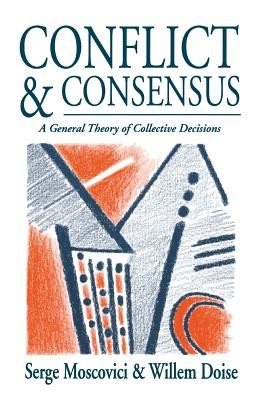
- We will send in 10–14 business days.
- Author: Serge Moscovici
- Publisher: SAGE Publications Ltd
- ISBN-10: 080398457X
- ISBN-13: 9780803984578
- Format: 15.7 x 23.4 x 1.6 cm, softcover
- Language: English
- SAVE -10% with code: EXTRA
Reviews
Description
This book presents a bold new theory of the processes of collective decision-making that draws on theoretical influences ranging from group decision theory through to the authors′ own social representations theory. Moscovici and Doise offer a novel analysis of group conflict and the construction of consensus to produce a general theory of collective decisions.
Going beyond the traditional view that compromise is a negative process where group members merely comply in order to sustain cohesion, the authors argue that the conflict at the root of group decisions can be a positive force leading to changes in opinion and to innovation. Their theoretical framework is illustrated in depth with numerous empirical investigations fro
EXTRA 10 % discount with code: EXTRA
The promotion ends in 19d.13:06:21
The discount code is valid when purchasing from 10 €. Discounts do not stack.
- Author: Serge Moscovici
- Publisher: SAGE Publications Ltd
- ISBN-10: 080398457X
- ISBN-13: 9780803984578
- Format: 15.7 x 23.4 x 1.6 cm, softcover
- Language: English English
This book presents a bold new theory of the processes of collective decision-making that draws on theoretical influences ranging from group decision theory through to the authors′ own social representations theory. Moscovici and Doise offer a novel analysis of group conflict and the construction of consensus to produce a general theory of collective decisions.
Going beyond the traditional view that compromise is a negative process where group members merely comply in order to sustain cohesion, the authors argue that the conflict at the root of group decisions can be a positive force leading to changes in opinion and to innovation. Their theoretical framework is illustrated in depth with numerous empirical investigations fro


Reviews